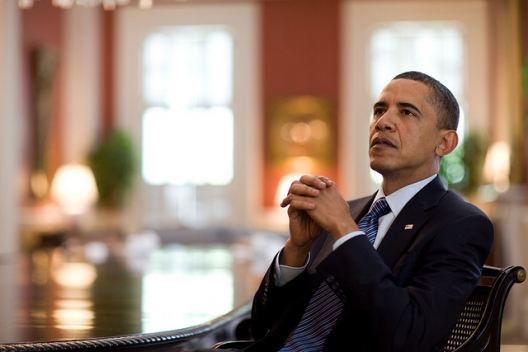 So what’s a retrenchment president to do? If Eisenhower, Nixon and Bush — our best prepared foreign-policy presidents — found it hard to manage a downsized strategy, Mr. Obama should expect the same. He won’t abandon retrenchment, nor does he need to. The domestic foundations of American power do need shoring up. But he needs to tend to its international foundations as well.
So what’s a retrenchment president to do? If Eisenhower, Nixon and Bush — our best prepared foreign-policy presidents — found it hard to manage a downsized strategy, Mr. Obama should expect the same. He won’t abandon retrenchment, nor does he need to. The domestic foundations of American power do need shoring up. But he needs to tend to its international foundations as well.
The president and his advisers sometimes do the opposite. When they say they want to pay less attention to the Middle East, they undermine the president’s own top goals: a nuclear deal with Iran and an Israeli-Palestinian settlement. These may be achievable only if allies and adversaries foresee a more active American role in the region. (Eisenhower, to be fair, didn’t get this either. When Nikita S. Khrushchev threatened West Berlin, Ike proposed cutting American troop levels in Europe. Congressional critics thought he had lost his way.)
Mr. Obama would also make retrenchment more effective by rebuilding American global influence. He favors ambitious trade pacts, one for Europe and one for East Asian allies, that cannot succeed without sustained presidential effort. Mr. Obama should recall that the first George Bush, even in his last days as president, managed to sign the North American Free Trade Agreement.
Like his predecessors, Mr. Obama rejects the idea that retrenchment means the fading of American power. Anyone who says America is in decline, he harrumphed in his 2012 State of the Union address, “doesn’t know what they’re talking about.” Retrenchment, he believes, is the way to avoid decline.
For a candidate seeking re-election, this was smart political positioning. Today, Mr. Obama has to focus on results. He will discover, as past presidents did, that popular views of retrenchment change quickly. After overreaching abroad and underperformance at home, pulling back seems mere common sense. But a strategy for preventing decline can start to look like one that accelerates, and even embraces it.
White Houses rarely see this coming. No American president has ever begun a retrenchment and then, as new challenges arose, found the path back to greater activism. Can Barack Obama figure out how to be the first? He’d be making history.
Stephen Sestanovich, a professor of international diplomacy at Columbia University, a senior fellow at the Council on Foreign Relations and the United States ambassador at large for the former Soviet Union from 1997 to 2001, is the author of “Maximalist: America in the World From Truman to Obama.”
Image: President Barack Obama, April 11, 2010 (photo: Pete Souza/White House)
